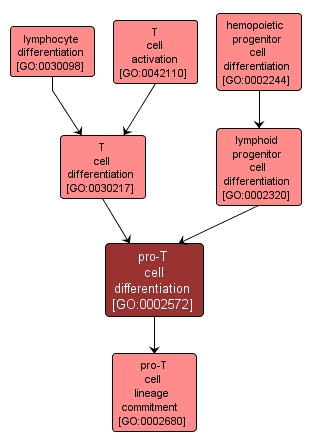GO TERM SUMMARY
|
| Name: |
pro-T cell differentiation |
| Acc: |
GO:0002572 |
| Aspect: |
Biological Process |
| Desc: |
The process whereby a precursor cell type acquires the specialized features of a pro-T cell. Pro-T cells are the earliest stage of the T cell lineage but are not fully committed. |
Synonyms:
- pro-T lymphocyte differentiation
|
|

|
INTERACTIVE GO GRAPH
|














